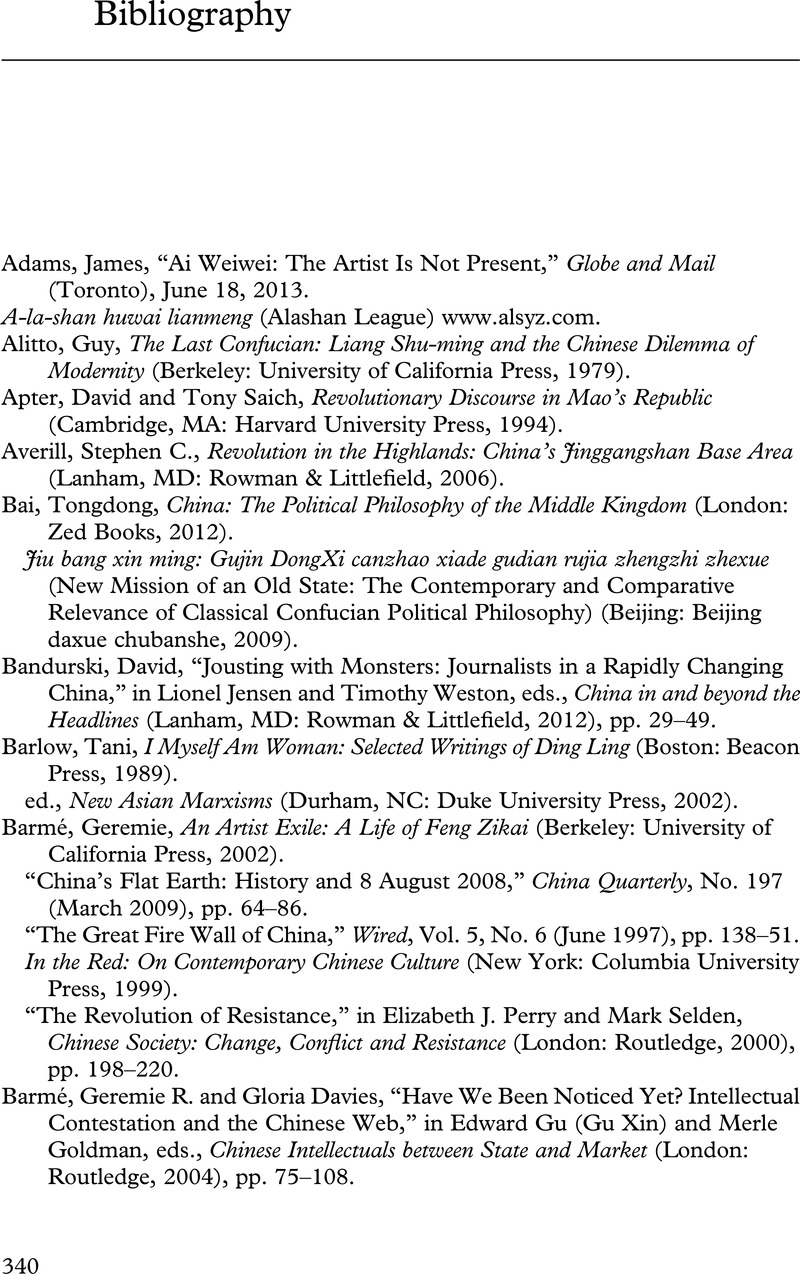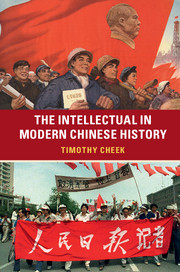Book contents
- Frontmatter
- Dedication
- Contents
- List of figures and maps
- Preface
- Acknowledgments
- List of abbreviations
- Map of China
- Introduction: for the public good
- 1 Reform: making China fit the world (1895–1915)
- 2 Revolution: awakening New China (1915–1935)
- 3 Rejuvenation: organizing China (1936–1956)
- 4 Revolutionary revival: overthrowing the lords of nation-building (1957–1976)
- 5 Reviving reform: correcting revolutionary errors (1976–1995)
- 6 Rejuvenation: securing the Chinese Dream (1996–2015)
- Conclusion: intellectuals, China, and the world
- Who's who (intellectuals featured in the main text)
- Further reading
- Bibliography
- Index
- References
Bibliography
Published online by Cambridge University Press: 18 December 2015
- Frontmatter
- Dedication
- Contents
- List of figures and maps
- Preface
- Acknowledgments
- List of abbreviations
- Map of China
- Introduction: for the public good
- 1 Reform: making China fit the world (1895–1915)
- 2 Revolution: awakening New China (1915–1935)
- 3 Rejuvenation: organizing China (1936–1956)
- 4 Revolutionary revival: overthrowing the lords of nation-building (1957–1976)
- 5 Reviving reform: correcting revolutionary errors (1976–1995)
- 6 Rejuvenation: securing the Chinese Dream (1996–2015)
- Conclusion: intellectuals, China, and the world
- Who's who (intellectuals featured in the main text)
- Further reading
- Bibliography
- Index
- References
Summary

- Type
- Chapter
- Information
- The Intellectual in Modern Chinese History , pp. 340 - 364Publisher: Cambridge University PressPrint publication year: 2016



